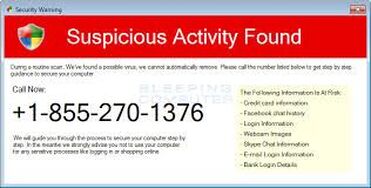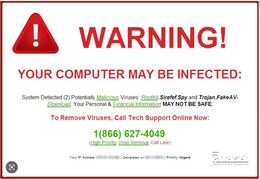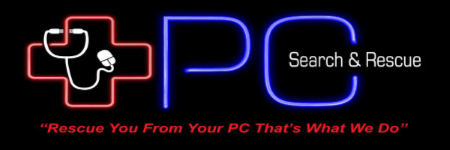|
ONE VERY IMPORTANT THING: MICROSOFT OR WINDOWS GROUP WILL NEVER EVER CONTACT YOU. "IT'S A SCAM." IF YOU GET A POP-UP OR A PHONE CALL, DO NOT CALL THE NUMBER ON THE POP-UP AND HANG UP THE PHONE. THIS IS TWO EXAMPLE OF WHAT A FAKE SCAM POP-UP MAY LOOK LIKE. What to Do If You Get a Pop-Up
If you get a pop-up and can't do anything with your computer, the first thing you should do is stay calm and don't panic. The worst thing you can do is call the phone number on the pop-up or click on any links in the pop-up. Doing so may lead to more problems, such as downloading malware or giving away your personal information. Here's what you should do instead:
Don't fall for windows virus alert scams: protect yourself from cybercriminals Are you tired of receiving constant pop-ups on your computer warning you of a supposed virus? Or have you received a phone call from someone claiming to be from Microsoft, stating that your computer is infected with a virus? These scenarios may seem alarming, but they are most likely scams designed to deceive you into providing personal and financial information to cybercriminals. 1: how the windows virus alert scam works The windows virus alert scam typically involves a pop-up window that appears on your computer, often while browsing the internet. The pop-up will claim that your computer is infected with a virus and urge you to call a phone number or click a link to resolve the issue. If you do so, you may be directed to a fake tech support website or connected to a scammer who will attempt to gain access to your computer and steal your information. 2: why you should not respond to the windows virus alert It's important to remember that legitimate antivirus software will never ask you to call a phone number or click on a link in a pop-up window. Responding to these alerts can result in severe consequences, such as giving cybercriminals access to your computer and personal information. Additionally, scammers may ask for payment to "fix" the issue, which can result in financial loss. 3: how to protect yourself from windows virus alert scams Taking a few precautionary measures is essential to protect yourself from falling victim to the windows virus alert scam. First, install reputable antivirus software and keep it up-to-date. Second, be cautious when browsing the internet and avoid clicking on suspicious links or pop-up windows. Third, never provide personal or financial information to unsolicited callers or websites. In conclusion, don't fall for the windows virus alert scam. Stay vigilant and protect yourself from cybercriminals by knowing the warning signs and taking necessary precautions. Remember, if it seems too good to be true, it probably is.
0 Comments
Your comment will be posted after it is approved.
Leave a Reply. |
The Blog
Hi there! I'm Bob Beeman, owner of PC SAR 911 Computer, an IT repair service, and PC SAR Web Services, a web design, and (SEO) Search Engine Optimization company. |


